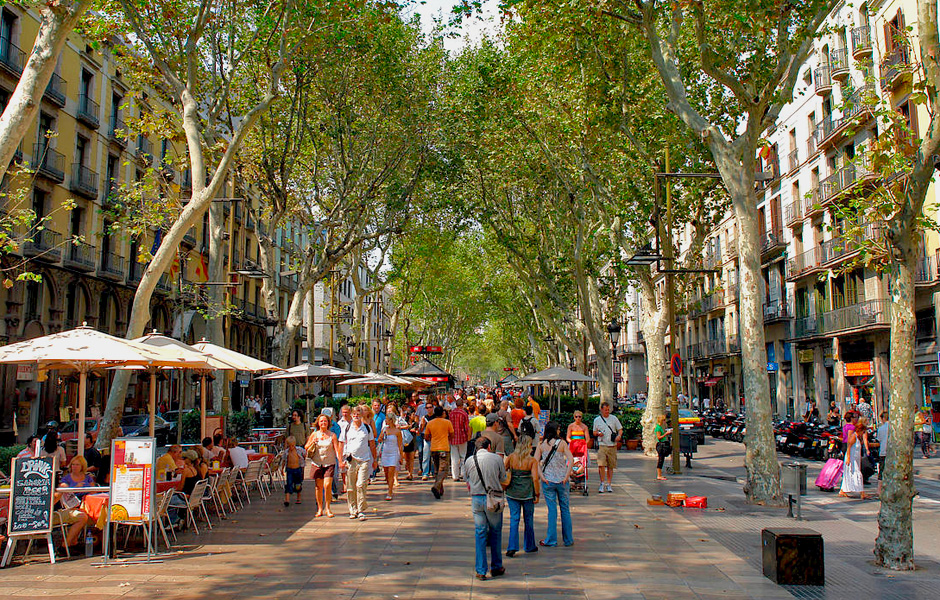Barcelona's official languages are Catalan and Spanish. However, most signs are indicated only in Catalan because it is established by law the official language. Yet, Spanish is also widely used in public transports and other facilities, though announcements in the Metro are made only in Catalan. As in most other countries, any attempt by visitors to use the native language (in this case Catalan, not Spanish) is always appreciated. Most Catalans are bilingual in Catalan and Spanish, and instinctively address foreigners in Spanish. Catalan is a language, not a dialect, and sounds closer to Italian, Portuguese, and French in many ways. Avoid referring to Catalan as a dialect, which will totally offend Catalans.
The issue regarding the language is intertwined with Catalonian nationalism. Around 70% of local people consider Catalonia to be a separate nation, with its own culture, history and traditions, different from the other regions in Spain. Contrary to stereotypes, bullfighting and flamenco are not so popular in this region (as in many other Spanish regions), but there are also quite a few other differences. The identity subject might be a very sensitive one among certain traditional Catalans. Moreover, speaking in Catalan to Spanish-speaking Catalans might also be a sensitive issue.
These issues regarding language, national identity, and politics are like politics anywhere, and there's no way to summarize here (nor is it necessary in a travel guide) all the views that exist. While a significant number of Catalonians are anti-Spanish (and feel opposed to Spain and the Spanish language), many are simply indifferent.
In tourist areas, almost all shops and bars have some English speaking staff. However, like in the rest of Spain, English is not widely spoken, though it's still more widespread in Barcelona than in the rest of Spain, and you are more likely to encounter an English speaker in Barcelona than in Madrid. People will generally make an effort to try to help you if you speak in English, but their vocabulary will be very limited. If you do find a fluent English-speaking Barcelonian, the person is most likely to be born or have lived outside of Spain, usually a European or North American immigrant (both groups being a very significant part of the city center inhabitants along with the not-so-very-well-integrated Asian and African immigrants, who, of course, also often know English).
Your best goodwill in communication would be to try speaking in Catalan if you can. The locals learn both Catalan and Spanish in school (and are completely fluent in both), but Catalan is definitely the preferred language. Even for those who do not support independence from Spain, clearly Catalan is the first language, and if you can communicate with the locals in Catalan, this is really appreciated. While most locals understand that Spanish is more prevalent and are willing to converse with outsiders in Spanish, any attempts to speak Catalan will be met by smiles and encouragement, by and large. As such, visitors should make an attempt to say some basic greetings in Catalan, even if the rest of the conversation is held in Spanish.


